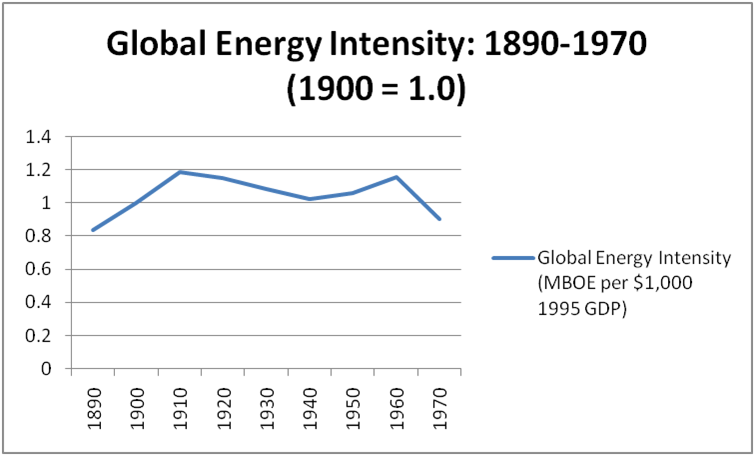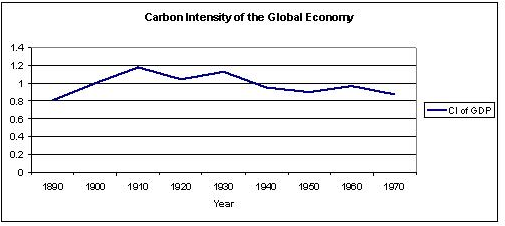Joe Romm is someone who I’ve never met, but he has taken on a somewhat odd obsession with attacking me over the past few weeks, and I have come to the conclusion that he is dishonest and uninterested in constructive discussion.
I have come to this conclusion after reading his most recent diatribe, which takes a semantic issue, inflates it with a lot of heated rhetoric, and pretends that it is something meaningful when it is not.
The molehill that Romm seeks to make a mountain out of is over the difference between “decarbonization of the economy” versus “decarbonization of primary energy supply.”
The difference between the concepts, and their relationship, is easily explained by the Kaya Identity, which is the basis for all emissions scenarios, including those used by the IPCC. The Kaya Identity holds that four factors can be used to develop scenarios of future emissions:
P = Population
GDP/P = Per capita wealth
Total Energy/GDP = Energy intensity
Carbon/Total Energy = Carbon intensity
Carbon emissions = P * GDP/P * TE/GDP * C/TE
You can see from the cancellation of the terms that the units match on both sides. If you take carbon intensity and energy intensity together, you get C/GDP which is often referred to as “carbon intensity of the economy” to avoid confusion with “carbon intensity of primary energy.” Because total energy of the economy is dominated by fossil fuels, trends in “energy intensity” and “carbon intensity of the economy” are very closely related.
A close look at the Kaya Identity shows that carbon emissions can go down by only one of several ways:
Reduce P
Reduce GDP/P
Reduce TE/GDP
Reduce C/TE
In our Nature article we stated quite clearly that:
Decarbonization of the global energy system depends mainly on reductions in energy intensity and carbon intensity. These result from technological changes that improve energy efficency and/or replace carbon-emitting systems with ones that have lower (or no) net emissions.
In other words, we do not think that either population is going to decrease or per capita wealth, so the focus must be on carbon intensity and energy intensity, which we clearly define as “decarbonization of the global energy system” (and not decarbonization of total energy). We wrote in exactly this manner to be absolutely clear about our meaning.
Similarly in a blog post I wrote:
During and following the industrial revolution, the world experienced a long period of carbonization of the global economy . . .
Note that I did not say “carbonization of total energy supply” as Romm would have his readers believe. Romm is either horribly sloppy in his reading habits or willfully malicious in his intent.
Joe Romm’s focus on semantics and definitions is the classic approach of someone who feels that they can’t win a debate on substance, and must resort to dissembling and misdirection. I for one will no longer give Joe Romm the benefit of the doubt. His actions may fool a few who wish to be fooled, but ultimately he is just discrediting himself with such behavior.

